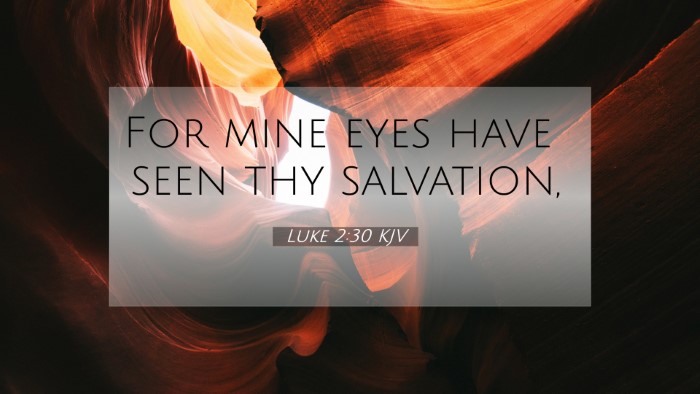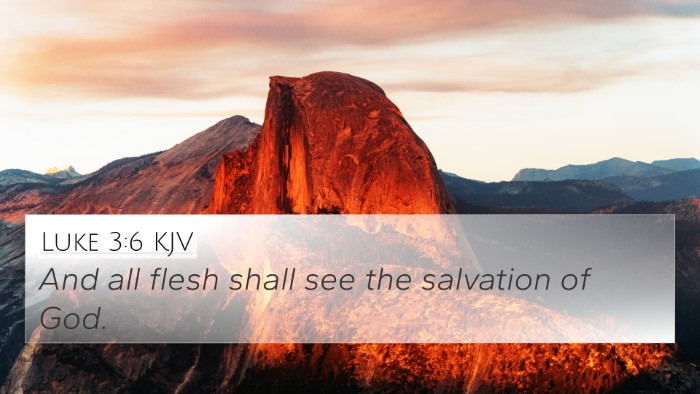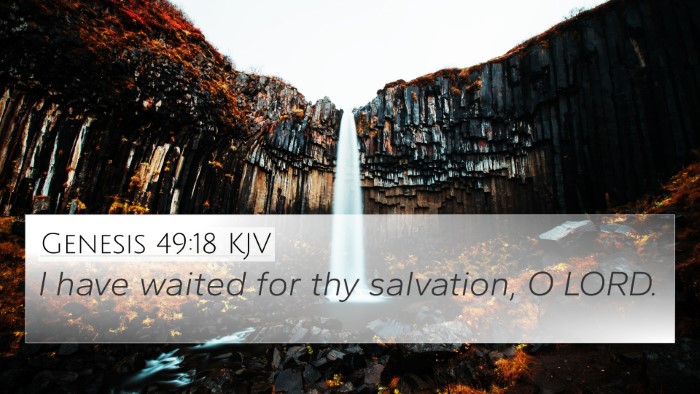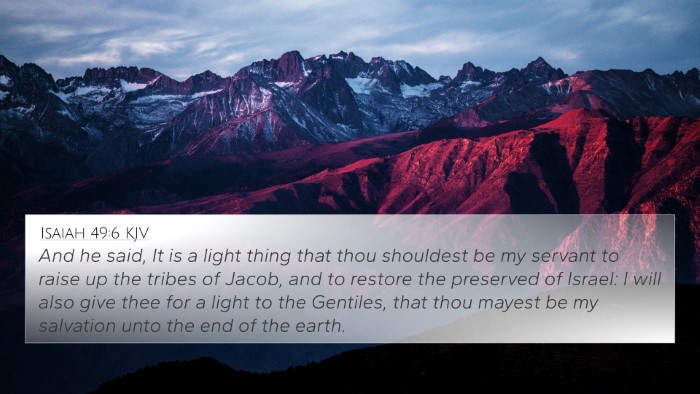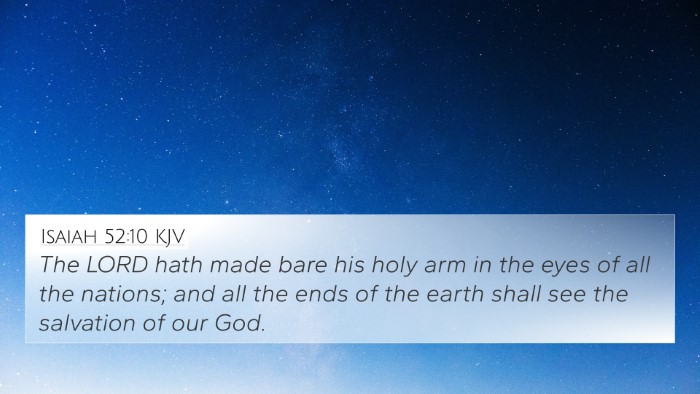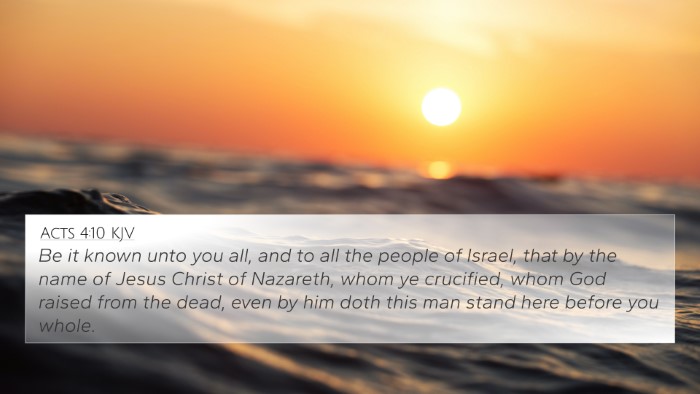Understanding Luke 2:30
Bible Verse: "For mine eyes have seen thy salvation." - Luke 2:30
This profound statement, spoken by Simeon, reflects a climactic moment of recognition and fulfillment in the biblical narrative. Let's delve into its significance through insights gathered from public domain commentaries.
Meaning and Significance
Matthew Henry's Commentary: Matthew Henry emphasizes the deep rejoicing of Simeon as he encounters Jesus, declaring that he has finally seen God’s salvation. His eyes have not only perceived a child but the fulfillment of God's promises to Israel and humanity. This moment signals hope and light to all nations, highlighting a critical theological theme of salvation reaching beyond Jewish boundaries.
Albert Barnes' Notes: Barnes points out that Simeon understood the significance of the Holy Child when he exclaims that this is the salvation of God. His acknowledgment demonstrates faith, recognizing that he has encountered the Messiah. In an age when the Jewish people longed for deliverance, Simeon’s prophecy affirms that Jesus is the prospective Savior who will bring peace and salvation.
Adam Clarke's Commentary: Clarke provides insights into Simeon’s devout character, detailing how he was led by the Holy Spirit to the temple to see Jesus. His declaration not only serves as a personal fulfillment but also connects profoundly to the themes of revelation and divine purpose. Clarke highlights the joy that accompanies seeing the promised Messiah, emphasizing that the act of seeing represents much more than physical sight; it encompasses spiritual insight and recognition of God's plan.
Bible Cross-References
- Isaiah 52:10: "The LORD has bared his holy arm before the eyes of all the nations, and all the ends of the earth will see the salvation of our God."
- John 1:29: "The next day John saw Jesus coming toward him and said, 'Look, the Lamb of God, who takes away the sin of the world!'"
- Luke 3:6: "And all mankind will see God’s salvation."
- Romans 1:16: "For I am not ashamed of the gospel, because it is the power of God that brings salvation to everyone who believes: first to the Jew, then to the Gentile."
- Acts 4:12: "Salvation is found in no one else, for there is no other name under heaven given to mankind by which we must be saved."
- Hebrews 2:10: "In bringing many sons and daughters to glory, it was fitting that God, for whom and through whom everything exists, should make the pioneer of their salvation perfect through what he suffered."
- 2 Peter 3:9: "The Lord is not slow in keeping his promise, as some understand slowness. Instead he is patient with you, not wanting anyone to perish, but everyone to come to repentance."
Thematic Connections
This verse illustrates vital thematic Bible verse connections, encompassing the themes of:
- Divine Guidance: Simeon’s spiritual intuition recognizes the Messiah.
- Fulfillment of Prophecy: Jesus' coming as a fulfillment of Old Testament prophecy.
- Universal Salvation: The message of Jesus is not confined to Israel but extends to all nations.
- Faith and Hope: Simeon reassures believers of the anticipated hope in God’s salvation.
Conclusion
Luke 2:30 is a pivotal verse that confirms the recognition of Jesus as the awaited Savior. Through the lenses of biblical commentaries, we grasp richer insights into Simeon’s proclamation and its theological implications. Consistent with many Bible verse cross-references, this declaration serves as an anchor point for understanding the continuity and fulfillment of God's redemptive plan across both the Old and New Testaments.
Additional Resources for Bible Study
For those interested in exploring further, consider utilizing tools such as Bible concordance, Bible cross-reference guide, and other Bible reference resources to enhance your study. Learning how to effectively manage cross-references will enrich your understanding and appreciation of the interconnectedness of Scripture.


